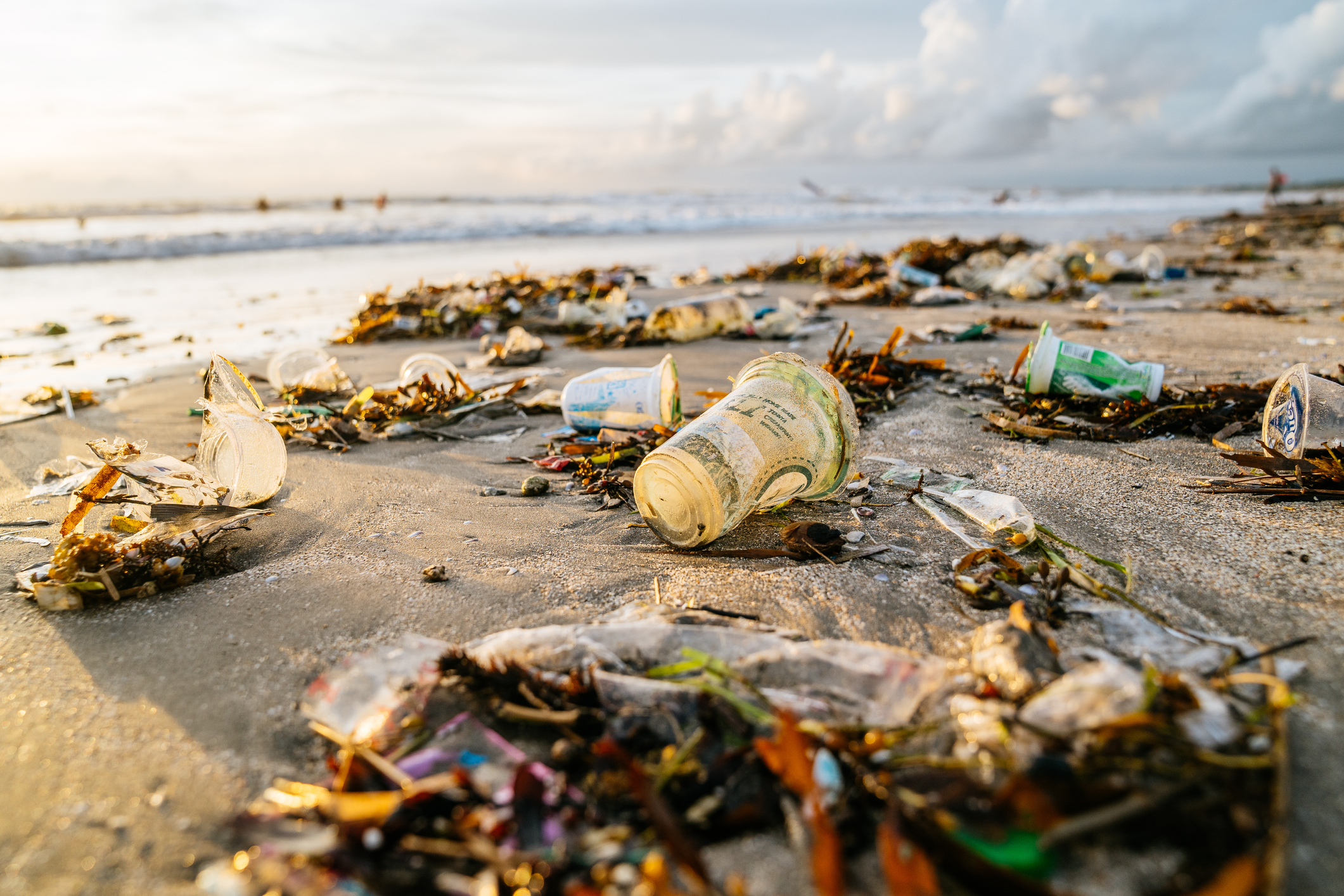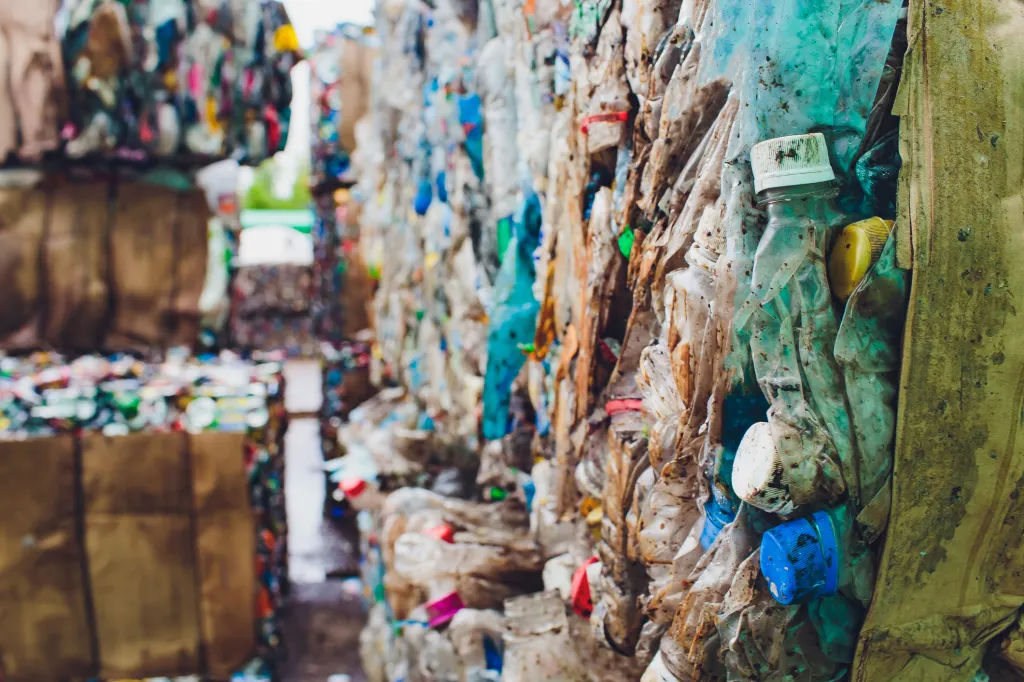The future of plastic pollution: An interview with Plastic Bank CEO David Katz

Published December 8, 2023 • 5 Min Read
As the world grapples with the combined challenges of plastic pollution and poverty, Plastic Bank intends to provide a solution. Founded by David Katz, this enterprise aims to reduce the amount of discarded plastic in our oceans while enhancing the lives of people living in vulnerable coastal regions. RBC chatted with Katz to learn more about the story of Plastic Bank and get his take on the next steps in the fight to reduce discarded plastic .

The origin story of Plastic Bank from the Vancouver shorelines to global impact
As a young boy playing along the beaches of Vancouver Island, David Katz was stunned at the amount of plastic waste washing ashore. This image of marine plastic pollution left an imprint on his memory and sparked a desire to address the issue and make a meaningful difference.
In 2013, Katz translated his passion into action by creating Plastic Bank—a social enterprise with a dual mission: to curb marine plastic pollution while alleviating poverty.
The Plastic Bank model centres around collection communities that exchange discarded plastic for income. After community members drop off their plastic and receive payment, Plastic Bank recycles the collected plastic and generates Social Plastic® feedstock. This recycled material re-enters the supply chain, reducing the need to produce new plastic while supporting plastic circularity – using plastics more effectively by keeping the material in use for longer, then recovering it to make new products.
The result?
Tangible environmental, social, and economic impact, stemming from a simple but revolutionary idea.
Over the years, the organization has achieved remarkable milestones. From its initial pilot project in Alaska to mobilizing over 550 recycling communities in Southeast Asia, Latin America, and Africa, Plastic Bank has stopped over 100 million kilograms of plastic from polluting our oceans.
“We see Plastic Bank as a catalyst for inspiring collective action, driving innovation, and fostering an environment where recycling is a force for good, helping to uplift marginalized communities and protect the planet,” Katz says. “Our initiatives in the pipeline aim to expand the reach of our movement, helping to make it accessible to all who wish to contribute to a regenerative and circular economy future.”

The future of plastic pollution and plastic circularity
When looking at what’s on the horizon for plastic use and recycling, Katz says we’re moving away from environmental sustainability – producing plastic without damage to the environment – towards regeneration – producing plastic with reparation to the environment.
“Picture an economy where transactions repair and restore our planet,” he says. “We’re seeing a rise in discussions about regenerative consumption, where commerce and economy work for the greater good.”
Katz believes the real challenge is not to eliminate plastic but to change our relationship with it, noting how plastic has improved our lives and driven innovation.
“It’s not the material itself but how we use, manage, and dispose of it that demands a radical transformation,” he says. “Recognizing plastic as a valuable resource underscores the importance of responsible consumption and recycling.”
With Canada’s vast coastline and abundant freshwater resources, fighting marine plastic pollution is critical—and the country is taking steps to address the issue.
In the 2022 budget, Canada committed to investing $183.1 million over five years to reduce plastic waste and improve plastic circularity through regulatory measures and scientific research. Canada also released its Zero Plastic Waste agenda, which includes targets, standards, and regulations to help keep plastics in the economy and out of the environment.
With these initiatives from the Canadian government, there is growing pressure on Canadian businesses to adopt a more resource-efficient approach to managing plastics, including developing innovative alternatives to single-use plastic, reducing plastic waste generation, and adopting the Ocean Plastics Charter.
Katz believes that governments worldwide will continue to implement policies and legislation related to plastic use, noting that Extended Producer Responsibility (EPR) laws are gaining momentum globally. Under EPR laws, companies bear legal responsibility for the complete lifecycle of their products, including product generation, marketing and disposal. By applying fees and taxes on products depending on their recyclability and volume of waste they generate, EPR laws increase companies’ liability for the lifecycle of their products.
“The overarching goal is to drive a substantial reduction in discarded materials and pollution, pushing us closer to a circular economy for plastic ,” Katz explains. “EPR represents a shift in the way businesses handle their discarded materials, and its adoption will encourage companies to take an active role in managing their environmental impact.”
But implementing environmentally-sustainable practices related to plastic is not without its challenges, Katz says, particularly in terms of infrastructure.
“Many regions lack proper recycling facilities and waste management systems, making it difficult to collect and recycle plastic effectively,” he says. “Organizations must invest in infrastructure or collaborate with existing initiatives to ensure plastic recycling reaches its full potential.”
He also says it’s wise for companies to team up and combine efforts.
“Partnering with like-minded businesses is crucial,” Katz adds. “The challenges we face are too immense to tackle alone.”
Another major hurdle is the excessive production of new plastic because it’s cheap to produce, which slows down global recycling efforts. Katz says governments can implement policies that create price parity for recycled content, which will foster infrastructure development and encourage material collection.
“It’s not an easy thing to do,” he says, “but it presents an opportunity to make recycled content more competitive.”
While it’s tempting to feel discouraged when looking at the trends around plastic waste, Katz remains optimistic.
“My perspective on the future is shaped by recognizing our collective influence and impact. We have the power, position, and influence to help change the world—and that gives me hope,” he says.
“I have hope for a world where compassion and environmental stewardship help to guide our actions, and we no longer label any material as waste.”
This article is intended as general information only and is not to be relied upon as constituting legal, financial or other professional advice. A professional advisor should be consulted regarding your specific situation. Information presented is believed to be factual and up-to-date but we do not guarantee its accuracy and it should not be regarded as a complete analysis of the subjects discussed. All expressions of opinion reflect the judgment of the authors as of the date of publication and are subject to change. No endorsement of any third parties or their advice, opinions, information, products or services is expressly given or implied by Royal Bank of Canada or any of its affiliates.
Share This Article





